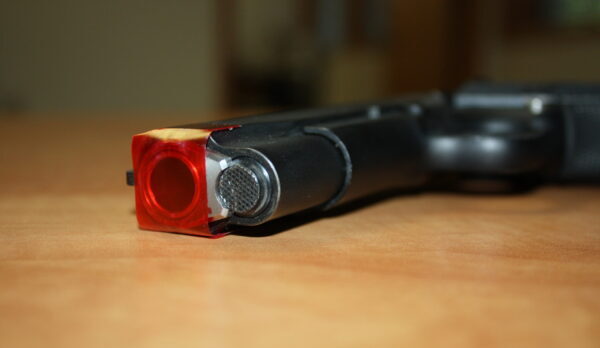
By Dave Workman
Editor-in-Chief
A federal judge in San Diego has granted a preliminary injunction against parts of California’s “Unsafe Handgun Act” (UHA) but also stayed the ruling pending an appeal or further hearing on the case, whichever occurs first, and set a telephone conference on April 14 “at which time the parties shall advise the Court how they wish to proceed.”
It’s a partial victory for the Second Amendment Foundation and its partners in the case, known as Renna v. Bonta. SAF is joined by its sister organization, the Citizens Committee for the Right to Keep and Bear Arms, plus, the Firearms Policy Coalition, North County Shooting Center, Gunfighter Tactical, San Diego County Gun Owners, and several private citizens, including Lana Rae Renna, for whom the case is named. They are represented by attorneys Raymond DiGuiseppe of Southport, N.C., Michael Sousa of San Diego, Calif., and William Sack of Havertown, Pa.
Chief Judge Dana M. Sabraw of the U.S. District Court for the Southern District of California—a George W. Bush appointee— notes in his 30-page ruling that “Plaintiffs have shown likely success on their claim that the UHA’s CLI, MDM and microstamping requirements violate their Second Amendment rights.”
The case, originally filed in late 2020, challenges the requirements of California’s UHA, which includes a codified “roster” of acceptable handguns. The roster limits handgun sales to those models that satisfy numerous testing and safety feature requirements, such as a “chamber loaded indicator” (CLI) and “magazine disconnect mechanism” (MDM) and microstamping, which plaintiffs say are not required in 47 other states.
The UHA dates back more than two decades, and over the years it has allegedly prevented many modern handgun models which lack the mandated safety features. There is no indication that any commercially available semiautomatic pistol has a microstamping feature. The CLI and MDM requirements were added in 2007.
SAF founder and Executive Vice President Alan Gottlieb was happy with Judge Sabraw’s ruling, and he is looking forward to a “satisfactory resolution” of the case next week.
“California’s handgun roster requirements were deliberately designed to frustrate the sale of modern handguns in the state,” Gottlieb said, “and make it virtually impossible for Golden State residents to fully exercise their rights under the Second Amendment, which was incorporated to the states by the 2010 Supreme Court’s McDonald ruling.”
Many modern handguns from some of the top manufacturers are not permitted for sale in California, as Judge Sabraw’s opinion notes. The list reads like a “Who’s Who” of handgun brands including Smith & Wesson, Glock, Sig Sauer, Walther, Springfield Arms, Fabrique National, Wilson Combat and Nighthawk Custom.
“Importantly,” said SAF Executive Director Adam Kraut, “the Court determined that California failed to present historically comparable analogues to its requirement that handguns be equipped with loaded chamber indicators, magazine disconnect safeties, and have the ability to imprint a microstamp on fired casings. It is long overdue for California’s restriction on the ability of its citizens to purchase modern handguns meet its fate of being relegated to the pages of history.”



